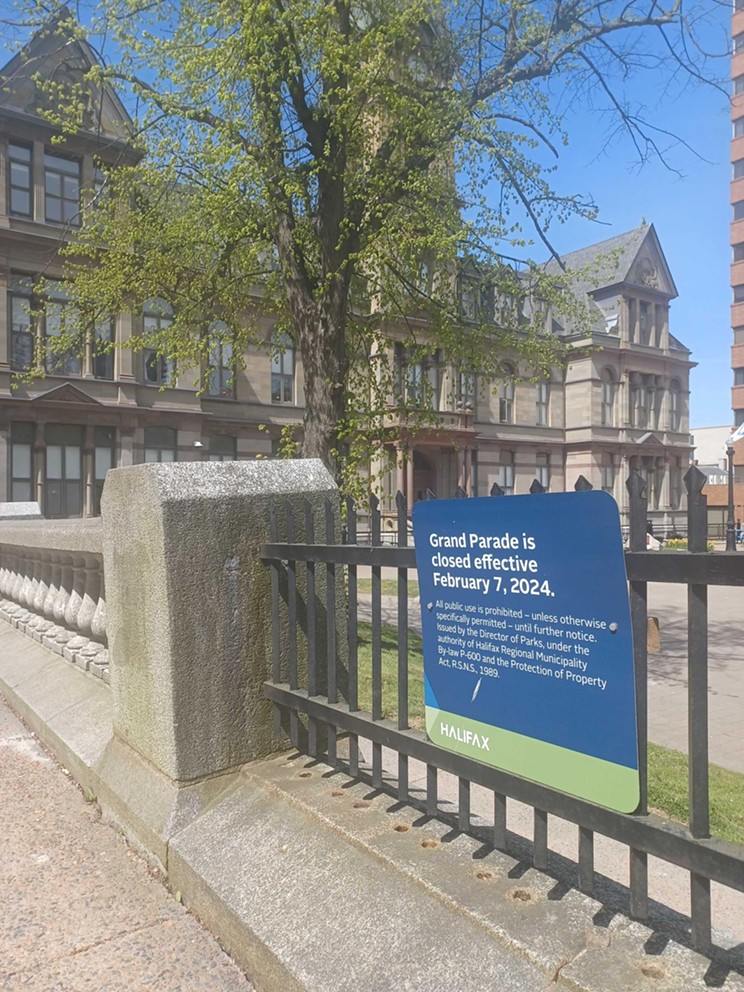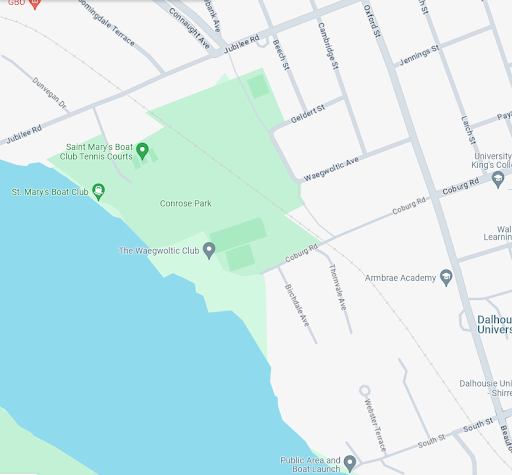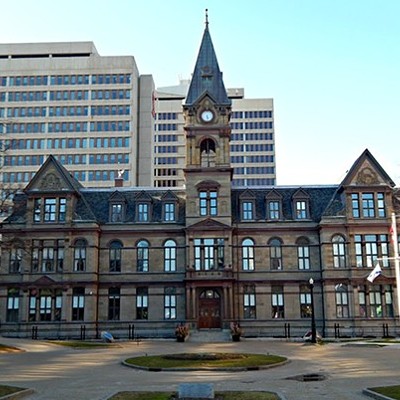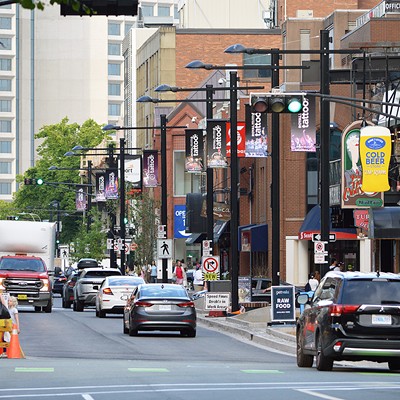Last Thursday, like many days in the HRM, traffic was brought to a standstill by a few people having a bad day. Congestion is not an occasional flaw of our transportation network, it’s the defining feature. Quite simply, the physics of cars doesn’t scale for mass transportation. If everyone needs a car to drive everywhere they go (which we currently do in Halifax), then congestion will not be going anywhere anytime soon. As the city and the province continue not to invest in active transportation or transit, more and more people will drive, and congestion, no matter how many lanes we add, will continue to get worse.
During the Housing Accelerator Fund public hearing (which will be covered by The Coast in more detail later this week), a lot of South End residents argued that if more density were allowed near the university, it would increase congestion because students would do more driving. This is not true, or rather, what’s happening right now is that thanks to a lack of density students are living further and further away from their schools and since transit sucks they are driving and making congestion worse.
And just a note to students, if you are a student of Dalhousie or Kings who drives in, the best place to find free all-day on-street parking is right here:
Anyway, trying to fix the mistakes made in building infrastructure based on the lies sold to us by car companies is not limited to the city. It’s also a provincial issue, which is why, in 2022, the province established the Joint Regional Transportation Agency.
But for the JRTA’s part they seem to understand the full scope of the problem with car-first city building. They pointed out things like the fact that transportation, meaning driving, is about 30% of Nova Scotia’s greenhouse gas emissions. They told councillors that building out car infrastructure in the way we have is limiting our transportation corridors. The president of the JRTA, Mike Peck, told council that we’ve been studying the problems caused by cars for 80 years, and now all those problems are coming home to roost. He, a long-time public servant, told council that the JRTA’s work makes him optimistic about the future because it fundamentally rethinks our transportation priorities.
Here’s to hoping his optimism isn’t killed by our current crop of middling to bad political leaders.
Things that passed
SailGP is asking permission to burn carbon to fly helicopters so that camera crews can film the racing action. This passed on consent.
Council gave the CAO power to spend the Housing Accelerator Fund money. Although this money is supplemented by the HAF money this year, this is routine spending of the HRM’s density bonus money. The density bonusing scheme allows developers to add density to their developments as long as they contribute a little extra to the public good. This is normally a contribution to a slush fund the city then gives out to non-profits to try and get affordable housing built.
The litterbug bylaw from the Community Planning and Economic Development standing committee got first reading on the consent agenda.
Council will write a strongly worded letter to the province asking the province to update the building codes. These new building codes will require new construction to be more energy efficient. Still, the province has delayed implementing the changes due to “feedback from the public and the construction industry.” The longer the province waits to enact these changes, the more likely you will have to pay extra to bring your building up to code if/when you renovate. The same is true for the city with its capital projects, which is why it wants these changes enacted ASAP. Cynically speaking, the longer the province waits, the more it allows construction companies to build under the old code and pass on the higher cost of retrofits to the public purse or individual homeowners. And construction companies seem to have a lot of influence on this provincial government. This passed on the consent agenda.
Councillor Sam Austin will get a staff report to determine how to get enough ferry operators in this city. There is more on this in the notable debates section below.
Notable Debates
This notable debate is brought to you by the comment section of the internet, Reddit. Last week someone posted Suzanne Rent’s story about Austin’s motion to Halifax’s subreddit. Redditors pointed out that this was a waste of time because this report will come back in a few months and say better working conditions, higher pay and paying for new hires to get their ship driver's licence will solve the city’s ferry staffing woes. However, Austin took to the comments to explain that: “What I have been told by management is that only three positions are currently vacant, which begs the question of if it only takes being down such a small number of crew, whether there needs to be more flexibility built into the system by adding more people over and above the currently vacant positions. “If we're not just filling the vacancies but actually adding more positions than that's something that Council will need to budget for and that only happens if you get a report from staff. We don't just come in and say ’go do X’ you ask a question via a motion, get a report back with options, and then choose one.”
He continued to say the reason this needs to be a staff report is that: “The Charter requires that Council get the advice of the CAO prior to making decisions. The CAO's advice takes the form of a staff report. It can make government seem slow, but can you imagine all the messed up stuff that would happen if Council just went in and directed whatever we felt like on a given day with no advice from anyone? Getting the advice of the experts is important. Why have them otherwise?” said Austin.
To which user MCneill27 thanked Austin for his explanations. He then spoke for most of us when he continued: “I’m sure you can understand citizens’ frustrations when a public service we fund is so obviously deficient - not for weeks or months but years - and things have to be so bad for so long just for a single councillor to motion a staff report that has to be approved by council so that the CAO can take said report and recommend changes. Then the changes can hopefully happen in what, the next year at best?
“Is there a single shred of proactivity present in council at all? Because citizens only see day-late-dollar-short reactivity all the way down. Planning, housing, transit… council is not ahead on anything. Citizens are beyond fed up.”
Hear hear.













